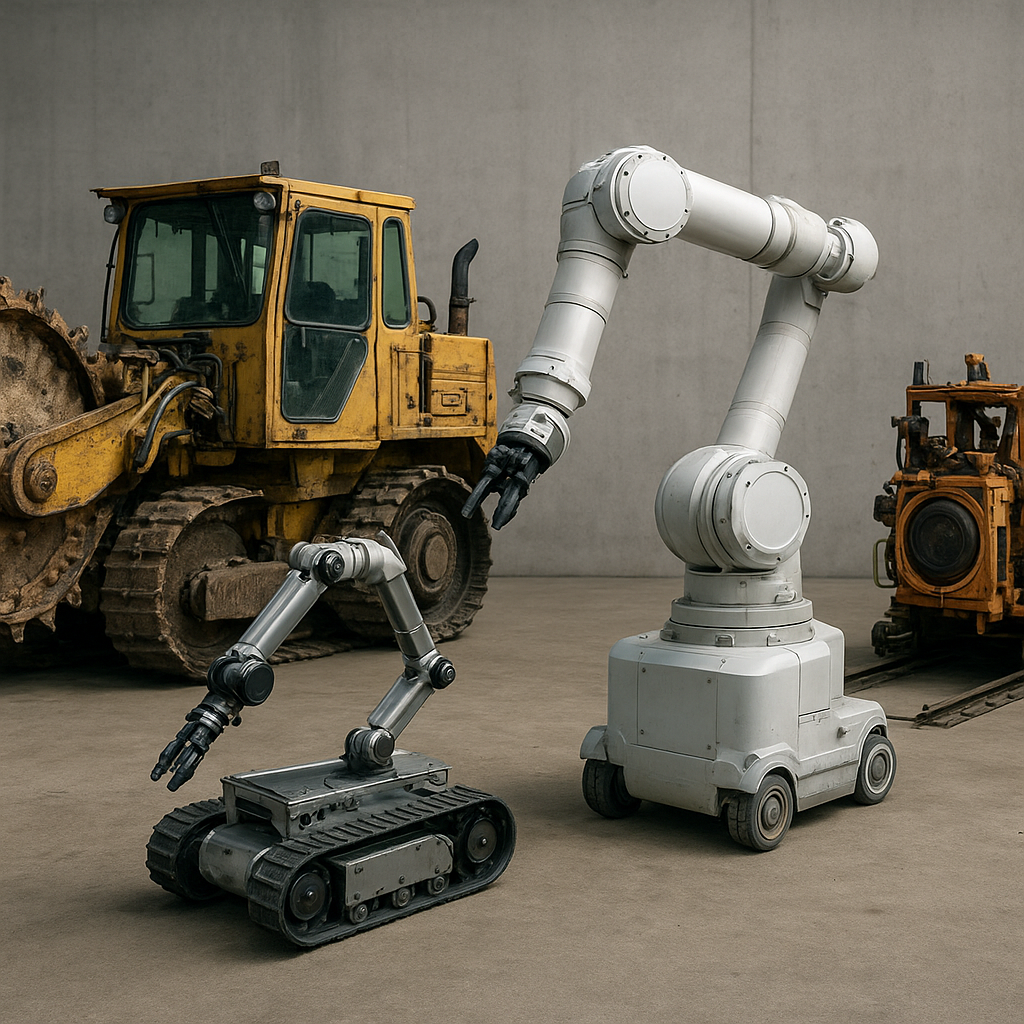
Digital transformation is revolutionizing the way industries operate, particularly in enhancing the efficiency of industrial equipment. As technology continues to advance, businesses are increasingly adopting digital tools and strategies to optimize their operations, reduce costs, and improve productivity. This article explores the significant role digital transformation plays in boosting industrial equipment efficiency, examining key technologies and strategies that are driving this change.
Understanding Digital Transformation in Industry
Digital transformation refers to the integration of digital technology into all areas of a business, fundamentally changing how it operates and delivers value to customers. In the industrial sector, this transformation is not just about adopting new technologies but also about rethinking processes and strategies to leverage these technologies effectively. The goal is to create more efficient, agile, and customer-focused operations.
One of the primary drivers of digital transformation in industry is the need to improve equipment efficiency. Industrial equipment is often a significant investment, and maximizing its performance is crucial for maintaining competitiveness. By utilizing digital tools, companies can monitor equipment performance in real-time, predict maintenance needs, and optimize operations to reduce downtime and increase productivity.
Key Technologies Driving Efficiency
Several key technologies are at the forefront of digital transformation in industrial equipment efficiency. These include the Internet of Things (IoT), artificial intelligence (AI), big data analytics, and cloud computing. Each of these technologies plays a crucial role in enhancing equipment performance and operational efficiency.
Internet of Things (IoT)
The IoT involves connecting industrial equipment to the internet, allowing for real-time data collection and analysis. Sensors embedded in machinery can monitor various parameters such as temperature, pressure, and vibration, providing valuable insights into equipment performance. This data can be used to predict maintenance needs, optimize operations, and prevent costly breakdowns.
Artificial Intelligence (AI)
AI is transforming the way industries manage their equipment. Machine learning algorithms can analyze vast amounts of data to identify patterns and predict future outcomes. This capability is particularly useful for predictive maintenance, where AI can forecast when equipment is likely to fail and schedule maintenance accordingly, minimizing downtime and extending the lifespan of machinery.
Big Data Analytics
Big data analytics involves processing and analyzing large volumes of data to extract meaningful insights. In the context of industrial equipment, this means analyzing data from various sources to identify trends, optimize processes, and improve decision-making. By leveraging big data, companies can gain a deeper understanding of their operations and make more informed decisions to enhance efficiency.
Cloud Computing
Cloud computing provides the infrastructure needed to store and process large amounts of data generated by industrial equipment. It enables companies to access data and applications from anywhere, facilitating collaboration and improving operational efficiency. Cloud-based solutions also offer scalability, allowing businesses to adjust their resources as needed to meet changing demands.
Strategies for Implementing Digital Transformation
Successfully implementing digital transformation requires a strategic approach. Companies must carefully plan and execute their digital initiatives to ensure they achieve the desired outcomes. Here are some key strategies for implementing digital transformation in industrial equipment efficiency:
- Define Clear Objectives: Before embarking on a digital transformation journey, companies must define clear objectives and goals. This involves identifying the specific areas where digital tools can enhance equipment efficiency and setting measurable targets to track progress.
- Invest in the Right Technologies: Choosing the right technologies is crucial for successful digital transformation. Companies should assess their needs and invest in technologies that align with their objectives and offer the greatest potential for improving efficiency.
- Foster a Digital Culture: Digital transformation is not just about technology; it’s also about people. Companies must foster a digital culture that encourages innovation, collaboration, and continuous learning. This involves training employees to use new technologies and empowering them to contribute to digital initiatives.
- Collaborate with Partners: Collaborating with technology partners and industry experts can provide valuable insights and support for digital transformation efforts. These partnerships can help companies access the latest technologies and best practices, accelerating their transformation journey.
- Monitor and Adjust: Digital transformation is an ongoing process that requires continuous monitoring and adjustment. Companies should regularly assess their progress, identify areas for improvement, and make necessary adjustments to their strategies and technologies.
Challenges and Considerations
While digital transformation offers significant benefits, it also presents challenges that companies must address. One of the primary challenges is the cost of implementing new technologies. Investing in digital tools and infrastructure can be expensive, and companies must carefully consider their budget and resources.
Another challenge is the complexity of integrating new technologies with existing systems. Companies must ensure that their digital tools are compatible with their current infrastructure and that they can seamlessly integrate with existing processes. This may require significant changes to workflows and operations, which can be disruptive if not managed properly.
Data security is also a critical consideration. As companies collect and analyze more data, they must ensure that their data is secure and protected from cyber threats. This involves implementing robust security measures and protocols to safeguard sensitive information.
The Future of Digital Transformation in Industry
The future of digital transformation in industry looks promising, with continued advancements in technology expected to drive further improvements in equipment efficiency. Emerging technologies such as 5G, edge computing, and blockchain are set to play a significant role in shaping the future of industrial operations.
5G technology, with its high-speed connectivity and low latency, will enable faster and more reliable data transmission, enhancing real-time monitoring and control of industrial equipment. Edge computing will allow data processing to occur closer to the source, reducing latency and improving response times. Blockchain technology, with its secure and transparent data management capabilities, will enhance trust and collaboration in industrial ecosystems.
As these technologies continue to evolve, companies must stay informed and adapt to the changing landscape. By embracing digital transformation and leveraging the latest technologies, businesses can enhance their equipment efficiency, improve their competitiveness, and drive sustainable growth in the industrial sector.

